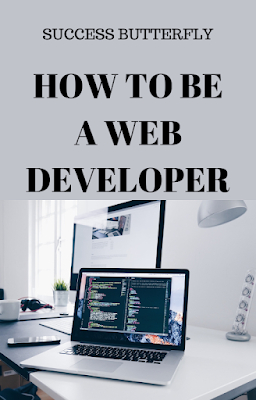How to Be an App Developer
How to Be an App Developer
Disclaimer: This blog contains affiliate links that if you click and buy from it, I will earn a small commission.
1. Choose a Platform
Decide whether you want to develop apps for iOS, Android, or both. Each platform has its own programming languages and development tools (Swift and Objective-C for iOS, Java, and Kotlin for Android).
2. Learn Programming Languages
Start by learning the programming languages specific to your chosen platform. For iOS development, you'll need to learn Swift or Objective-C, while Android development requires Java or Kotlin.
3. Understand the Development Environment
Get familiar with the development environment for your chosen platform. For iOS, you'll use Xcode, and for Android, you'll use Android Studio.
4. Study Mobile App Development
Take online courses, attend workshops, or enroll in formal education programs focused on mobile app development. There are many resources available, including courses on platforms like Coursera, edX, and Udacity.
5. Practice and Build Projects
Start building small apps and projects to apply what you've learned. These projects will help you gain practical experience in app development.
6. Explore App Design
Learn about user interface (UI) and user experience (UX) design principles. Understand how to create intuitive and user-friendly app interfaces.
7. Choose a Specialization
Consider specializing in a specific type of app development, such as game development, enterprise apps, e-commerce apps, or social networking apps. Specialization can set you apart in the job market.
8. Utilize Development Tools
Master app development tools and libraries. Familiarize yourself with integrated development environments (IDEs), design tools, and libraries that can simplify app development.
9. Understand Mobile App Architecture
Study mobile app architecture patterns like Model-View-Controller (MVC) or Model-View-ViewModel (MVVM) to design scalable and maintainable apps.
10. Learn about Data Management
Understand how to manage and store data in mobile apps. Learn about databases, RESTful APIs, and data storage options.
11. Test and Debug
Learn how to test and debug your apps. Use emulators, simulators, and real devices to test your app's functionality and performance.
12. Publish Apps
Publish your apps on app stores (Apple App Store for iOS and Google Play Store for Android). Familiarize yourself with the app submission process, including app store guidelines and requirements.
13. Continuously Update Your Skills
The app development field evolves rapidly. Stay updated with the latest trends and updates in app development by reading blogs, attending conferences, and participating in developer communities.
14. Build a Portfolio
Create a portfolio that showcases your app development projects. Include a variety of apps to demonstrate your range of skills and experience.
15. Collaborate and Seek Feedback
Collaborate with other developers and seek feedback on your projects. Sharing your work and receiving input can help you improve and refine your skills.
16. Seek Internships or Entry-Level Positions
Apply for internships or entry-level positions with companies that develop apps. Gaining industry experience can be valuable for your career.
17. Freelance or Work on Personal Projects
Consider freelancing or working on personal app projects to gain more experience and expand your portfolio.
18. Network
Attend developer meetups, conferences, and online communities to network with other developers, learn about job opportunities, and stay connected with the industry.
19. Apply for App Developer Jobs
Start applying for app developer positions at companies or consider becoming an independent app developer and starting your own app development business.
Final Thoughts
Becoming an app developer requires dedication, practice, and a willingness to learn and adapt to evolving technologies. With the right skills and experience, you can build a successful career in app development.






